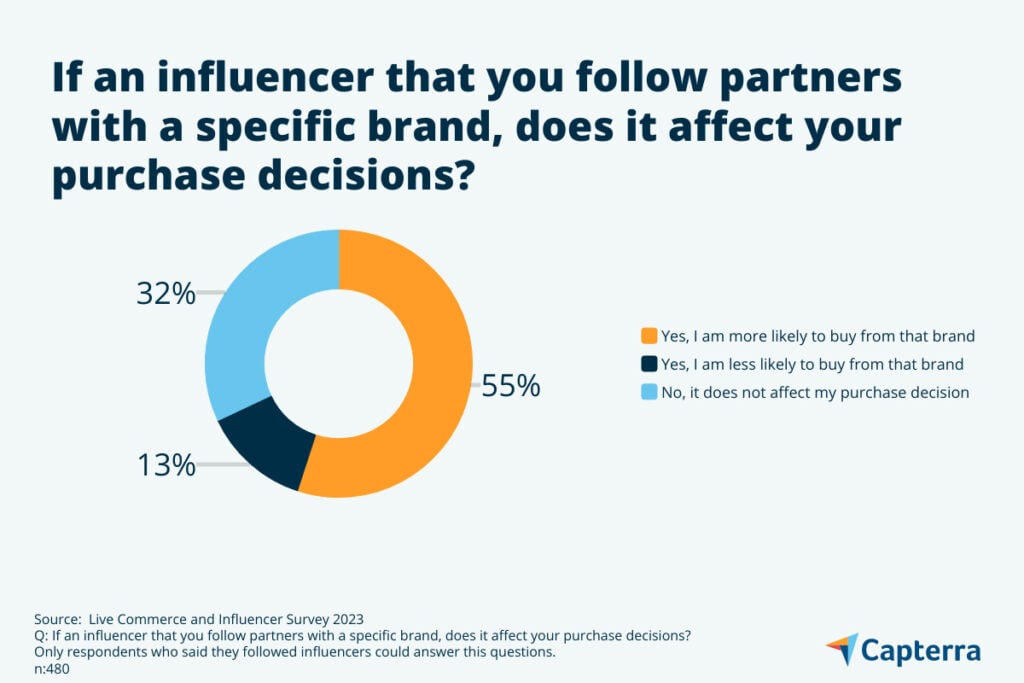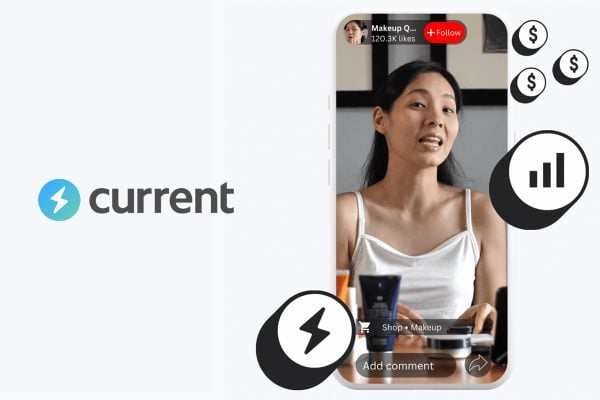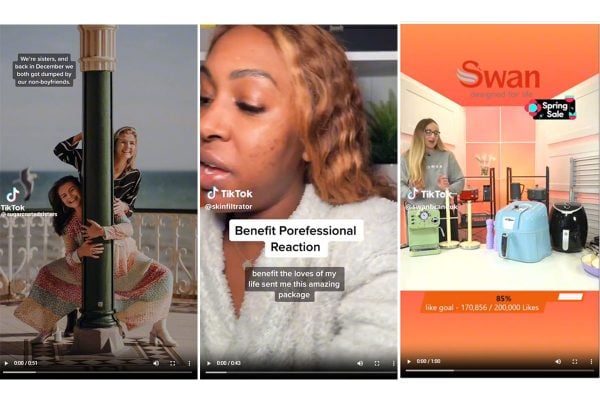Social media influencers play a significant role in online consumers’ purchasing decisions and today, more than half of consumers that follow influencers said they are more likely to buy from a brand that partners with an influencer.
Capterra UK surveyed 1,013 UK online consumers who regularly use social media to find out how influencers are perceived and determine the effectiveness of this marketing strategy.
The survey revealed influencers’ growing prominence on social media – especially via Instagram: As many as 89% of the respondents said they were familiar with the concept of social media influencers and of this group, 53% said they followed influencers on social media. In particular, the majority (55%) of these followers said Instagram was their top channel for viewing influencer content.
What type of influencers do people follow?
Today, influencers are promoting a vast array of products and services on social media.However, when asked what type of content consumers liked most, the majority (50%) of the influencer followers showed a preference for fashion influencers. In addition to fashion, other interest categories included:
- Lifestyle (49%)
- Food/Cooking (41%)
- Health & Wellness (41%)
- Music (37%)
Despite their popularity, some consumers are sceptical of influencers
While influencers may be successful brand ambassadors, questions were raised about the trustworthiness and authenticity of their content. Less than half (48%) of the people that follow influencers on social media said they trusted them (‘somewhat’ or ‘a lot’) to market goods and services. Meanwhile, 38% of respondents were on the fence, 14% ‘somewhat distrusted’ them and 2% said they did not trust them at all.
Top 4 reasons why influencers could appear untrustworthy
When the respondents were asked to identify the top elements that can make an influencer seem untrustworthy, the survey found that:
- 40% disapproved of the false image influencers sometimes portray, such as promoting beauty products or standards when they have had surgery or using photos that have been edited
- 38% said influencers that value quantity over quality seemed less trustworthy
- 37% stated they did not like how the life influencers portray on social media is unrealistic and unattainable for many followers
- 28% of respondents said that when an influencer noticeably lacked experience or professionalism, it eroded trust
If expectations and reality don’t match, consumers can end up with an unsatisfactory purchase; something which was echoed by the fact that 48% of respondents who had made a purchase because of an influencer said they had been disappointed.
One way that brands could prevent this is by providing adequate training to the influencer about the product they will advertise. This could help them avoid making false claims and gain their audience’s trust. In fact, 35% of followers said that a key element of their trustworthiness is if an influencer is knowledgeable about a product or service.
What is the future of influencer marketing on social media?
With social media influencers already guiding people’s purchasing decisions, this marketing strategy is proving to be powerful, especially for fashion and lifestyle brands.
That said, for companies starting out with influencer marketing, careful consideration should be given to how they select and work with influencers to ensure they meet customers’ expectations.
Influencer marketing can hold promise for brands seeking new channels to engage with customers. However, to succeed, it is crucial to understand your target audience and identify the correct channel. Even more so, with new channels such as Threads stepping into the fray. For example, after Instagram, our survey found that the second-most popular channel for watching influencer content was YouTube, chosen by 44%. But when we looked at Generation Z respondents only, TikTok was the clear second choice, voted by 58%. It is also important to choose an influencer that aligns with a brand’s identity and values.
Influencer marketing, CRM, and review management tools can all help brands discover, develop and track influencers. In addition, they can provide customer insights and feedback to help brands fully benefit from these content creators. If done correctly, influencer marketing could be rewarding on any of these channels
– Eduardo Garcia Rodriguez, Report analyst









